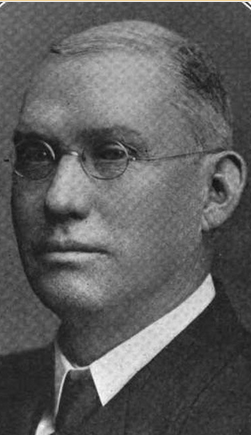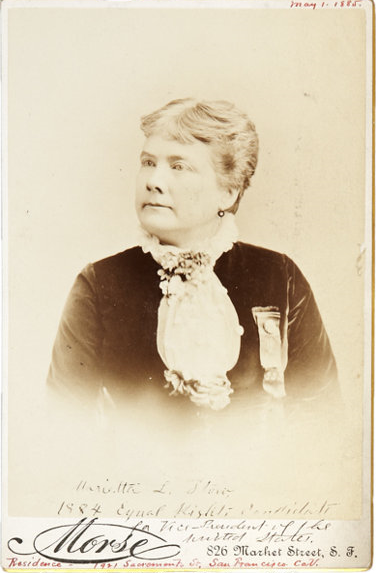Showing posts with label election of 1892. Show all posts
Showing posts with label election of 1892. Show all posts
Friday, May 31, 2019
James Britton Buchanan Boone Cranfill
James Britton Buchanan Boone Cranfill, September 12, 1858 (Whitt, Tex.) – December 28, 1942 (Dallas, Tex.)
VP candidate for Prohibition Party (1892)
Running mate with nominee: John Bidwell (1819-1900)
Popular vote: 270,879 (2.24%)
Electoral vote: 22/444
The campaign:
In addition to their main anti-alcohol focus, the Prohibition Party Platform also included promoting equal wages for equal work for both genders, government ownership of railroads and communication, and stricter requirements for immigration.
VP nominee Cranfill was an active campaigner, assigned to work the South. He personally felt his talents were squandered and he should have been touring nationally. In order to make the point the two major parties were alike, in Wesson, Miss. Cranfill tricked a hostile audience of Democrats into raising their hands in agreement to a text he read that they believed was the Democratic Party platform, but in fact to their chagrin it was the Republican's platform.
1892 was the high-water mark (forgive the unintentional pun) for the Prohibition Party in terms of presidential election votes. Their 2.24% has not been matched since then.
On the ballot in all but three states, they had their top showing in Minnesota (5.31%). Although the Populists owned the West, the Prohibition Party was the third party of choice in the East. They placed third, ahead of the People's Party in Michigan (4.48%), Wisconsin (3.54%), Rhode Island (3.11%), Ohio (3.06%), Illinois (2.96%), New York (2.86%), Maryland (2.76%), Maine (2.63%), Vermont (2.55%), Pennsylvania (2.50%), Connecticut (2.45%), New Jersey (2.41%), Massachusetts (1.93%), and New Hampshire (1.45%).
Election history: none
Other occupations: cowboy, teacher, medical doctor, newspaper publisher, Baptist minister, author, editor, old-time country fiddler
Buried: Grove Hill Memorial Park (Dallas, Tex.)
Notes:
If elected VP, Cranfill would have been too young to serve according to the US Constitution.
Was a Democrat prior to 1886
Known as "JB"
Wrote a nearly 500-page autobiography in 1916.
Vegetarian.
Phrenologist.
Old-time country fiddler and contributed to recordings in the 1920s including with Eck Robertson.
Active fundamentalist anti-Darwinian on the political sidelines during the 1925 Scopes trial.
James Gaven Field
James Gaven Field, February 24, 1826 (Walnut, Va.) – October 12, 1901 (Gordonsville, Va.)
VP candidate for People's Party (1892)
Running mate with nominee: James B. Weaver (1833-1912)
Popular vote: 1,026,595 (8.51%)
Electoral vote: 22/444 (Nev., Colo., Idaho, Kan., N.D)
The campaign:
The People's Party platform called for a graduated income tax, popular vote of senators, public referendum, and nationalizing the railroads. Although not official platform issues, they also supported limitation of immigration and contract labor (including the Chinese, no doubt), support for the 8-hour workday, abolition of the Pinkerton detectives, and limiting the presidency to a single term.
Presidential candidate James Weaver had been in the Union Army and was part of Sherman's March to the Sea. In order to balance the ticket and attract voters in Dixie, James Gaven Field who was a former slave owner and wounded CSA soldier was selected.
The Weaver/Field ticket was among the more successful of US third party efforts. They won 22 electoral votes in five Western states and elected a number of candidates to other offices. Field's place on the ballot did not really help them in the South as they had hoped. Elements of the Democratic Party were already starting to co-opt many issues of the People's Party, or "Populists" as they were known.
Election history:
1877-1882 - Virginia Attorney General (Conservative Party)
1881 - Conservative Democratic Party nomination for Virginia Attorney General - defeated
Other occupations: teacher, clerk, attorney, Culpeper County (Va.) Attorney 1859-1861, Confederate major, assistant to the secretary of the California constitutional convention 1849, General in militia 1872, farmer,
Buried: Fairview Cemetery (Culpepper, Va.)
Notes:
Served on the staff of SCA Gen. A.P. Hill. Was wounded at Cold Harbor and lost a leg at Cedar Creek.
Baptist lay preacher.
Argued before the Supreme Court that African Americans should not be allowed to serve on juries in
Ex Parte Virginia (1879) and lost.
Said that Grover Cleveland should be impeached in 1893.
Supported Democrat William Jennings Bryan in 1900.
Appointed General of the militia in 1872 and afterward known as "Gen. Field."
Thursday, May 30, 2019
Charles Horatio Matchett
Charles Horatio Matchett, May 15, 1843 (Brighton, Mass.) – October 23, 1919 (Allston, Mass.)
VP candidate for Socialist Labor Party (1892)
Running mate with nominee: Simon Wing (1826-1910)
Popular vote: 21,173 (0.18%)
Electoral vote: 0/444
The campaign:
Under the influence of Marxist intellectual Daniel De Leon who had joined them in 1890, the Socialist Labor Party made their first foray into national elective politics. The Party's nominating and platform-writing convention for 1892 had just eight delegates.
The platform included government ownership of utilities, compulsory education up to 14 years of age, progressive income tax, anti-child labor, equal wages for equal work for both genders, direct vote, suffrage for all races and genders, abolition of capital punishment, and most interesting of all:
"Abolition of the Presidency, Vice-Presidency and Senate of the United States. An executive board to be established, whose members are to be elected; and may at any time be recalled by the House of Representatives, as the only legislative body."
They were on the ballot in five states (NY, NJ, Conn., Mass., Penn.) cracking more than 1% only in NY (1.34%). But this was a third party that would live on for decades.
Election history:
1894 - Governor of New York (Socialist Labor Party) - defeated
1895 - Mayor of Brooklyn, NY (Socialist Labor Party) - defeated
1896 - US President (Socialist Labor Party) - defeated
1897 - New York City Council (Socialist Labor Party) - defeated
1900 - Presidential Elector (NY) (Social Democratic Party of America) - defeated
1903 - New York Court of Appeals (Social Democratic Party of America) - defeated
1903 - New York Court of Appeals (Socialist Party of America) - defeated
1910 - US House of Representatives (NY) (Socialist Party of America) - defeated
1913 - Alderman, New York City (Socialist Party of America) - defeated
1914 - US House of Representatives (NY) (Socialist Party of America) - defeated
Other occupations: US Navy sailor during the Civil War, beer bottler, clerk, carpenter, electrician, telephone company foreman, Esperanto teacher, shoe factory worker
Buried: cremated, ashes in Mount Auburn Cemetery (Cambridge, Mass.)
Notes:
Left the Socialist Labor Party to join the Socialist Party of America.
Was divorced according to 1910 Census
Ashes are in the same cemetery as fellow 3rd party VP candidates Henry Lee (1782-1867 Nullifier Party 1832) and Edward Everett (1794-1865 Constitutional Union Party 1860)
Sunday, May 26, 2019
Marietta Lizzie Bell Stow
VP candidate for Equal Rights Party (aka National Equal Rights Party) (1884)
VP candidate for National Woman Suffragists' Party (1892)
Running mate with nominee 1884: Belva Ann Lockwood (1830-1917)
Running mate with nominee 1892: Victoria Woodhull-Martin (1838-1927)
Popular vote 1884: 4194 (0.04%)
Popular vote 1892: 0 (0%)
Electoral vote 1884: 0/401
Electoral vote 1892: 0/444
The campaign 1884:
This is the first presidential campaign in American history with two women on the ticket, and the first where a female is running for Vice-President.
The Equality Party Platform called for, among others things, equal rights for all Americans regardless of race, gender, or place of birth. The language was anti-alcohol but stopped short of prohibition. They called for an end to Indian reservations on humane grounds. And they urged a stronger civil service policy.
Stow was not exactly on board with the Party on a couple issues. She was caught up in the anti-Chinese racist hysteria of the 1880s and she took a libertarian view toward alcohol.
Groups of men would appear at Equality Party campaign events dressed in "Mother Hubbard" attire in order to mock the female candidates.
The Equality Party received over 4000 votes from eight states. Lockwood petitioned Congress after the election to look into what she charged was voter fraud in some jurisdictions and that her popular vote was actually much higher.
The campaign 1892:
The National Woman Suffragists' Nominating Convention selected Victoria Woodhull-Martin and Marietta Stow on Sept. 21, 1892. Since Woodhull-Martin was actually a resident of England by this time in her life, it is no wonder the 1892 campaign didn't really go anywhere.
Election history:
1880 - San Francisco School Director (Calif.) (Greenback Party) - defeated
1882 - Governor of California (Women's Independent Political Party) - defeated
Other occupations: teacher, President of San Francisco Women's Suffrage Association 1869, author, newspaper publisher, editor, lecturer.
Buried: ?
Notes:
Formed the Women's Independent Political Party in 1881.
Became an activist to revise probate law in favor of gender equality after the death of her husband
Joseph Washington Stow on Aug. 11, 1874.
"Bell" was the surname of her first (apparently divorced) husband, Ezekial F. Bell. Their son Frank
Arthur Bell died at age four May 18, 1855 from scarlet fever.
Born Marietta Lois Beers daughter of Wakeman Beers and Lois (Louise) Wood.
Died from breast cancer.
Stow convinced Lockwood to accept the nomination for President.
Was raised in the Cleveland, Ohio area.
Attended Oberlin College with her sisters Harriet and Salome where they were known as "The Three Graces."
Earliest person to run for third party Vice-President twice.
Massachusetts has also been given as her birthplace.
Co-editor of a quarterly entitled Frolic. "Mrs. Marietta L. Stow, who has just started a paper in Oakland, Cal., is nearly sixty years old, and she gives this breezy sketch of herself: "She set every type in this number of Frolic, took and corrected all the proof, and locked up the forms ready for the pressman. She never had but twenty minutes instruction in printing, and that after she was fifty years of age, and none in proof-reading, as the many typographical errors will bear witness. After celebrating her sixtieth birthday she will set type in the morning, swing on the gate, play games, and ride on her tricycle in the afternoon, and 'laugh and grow fat' in the evening. She only weighs 200 pounds now, and never had the toothache."
Subscribe to:
Comments (Atom)

























